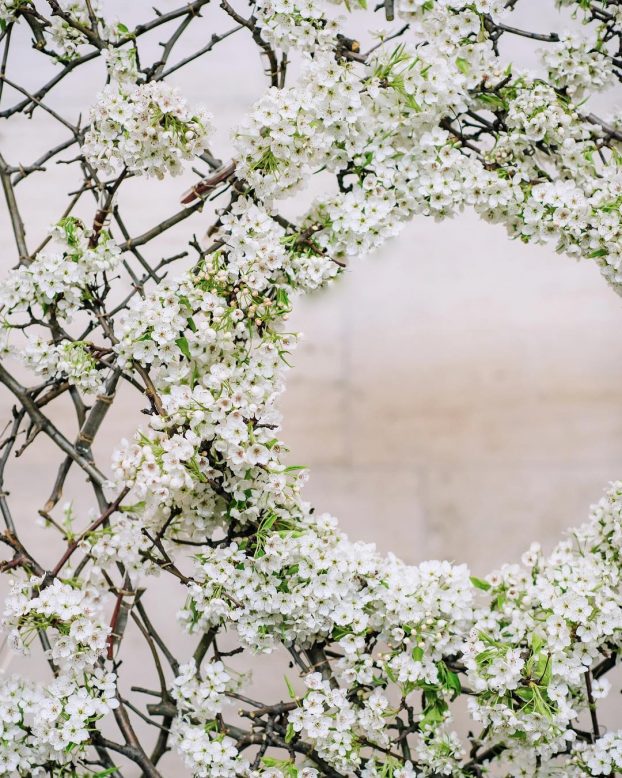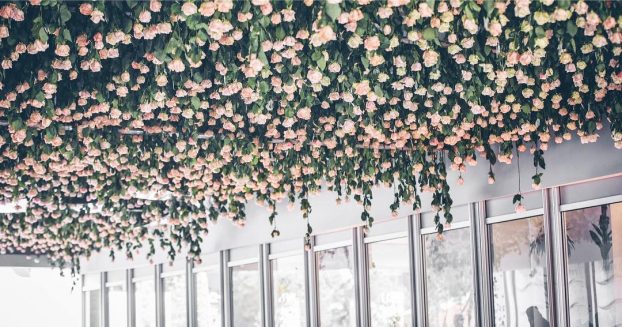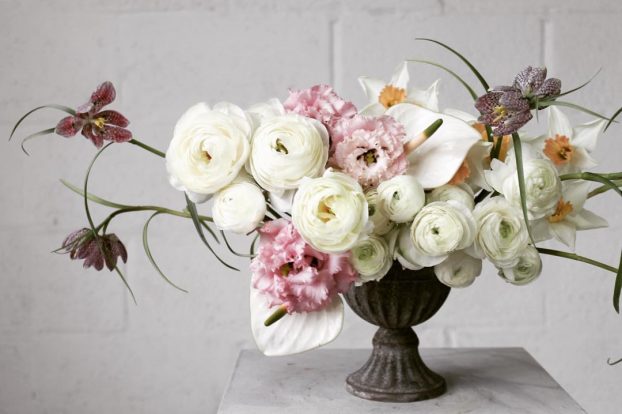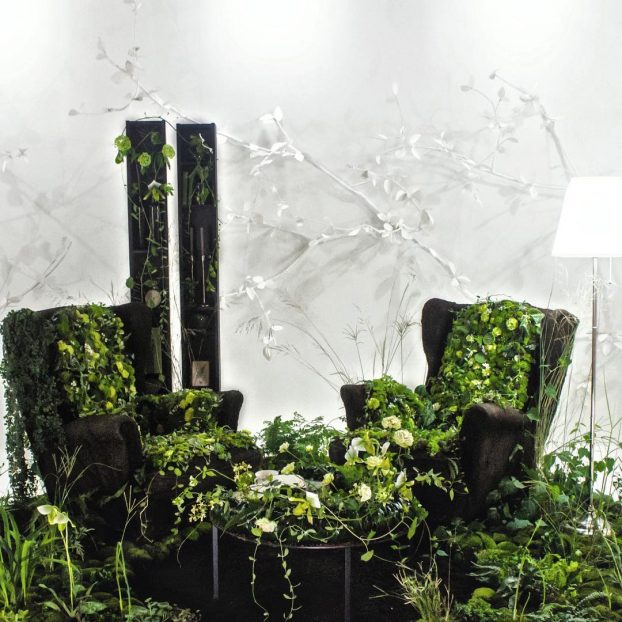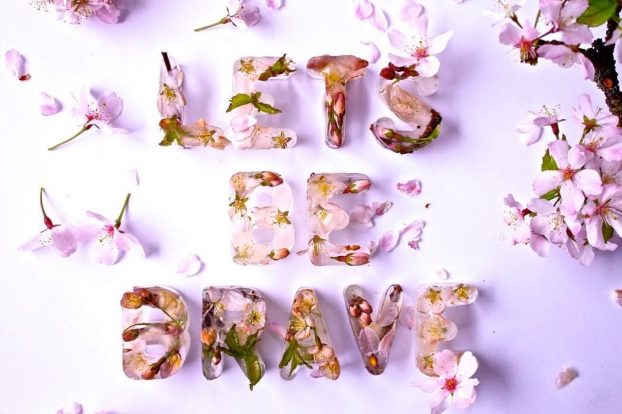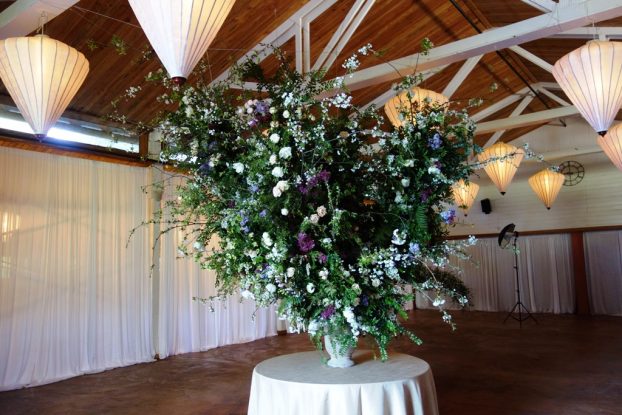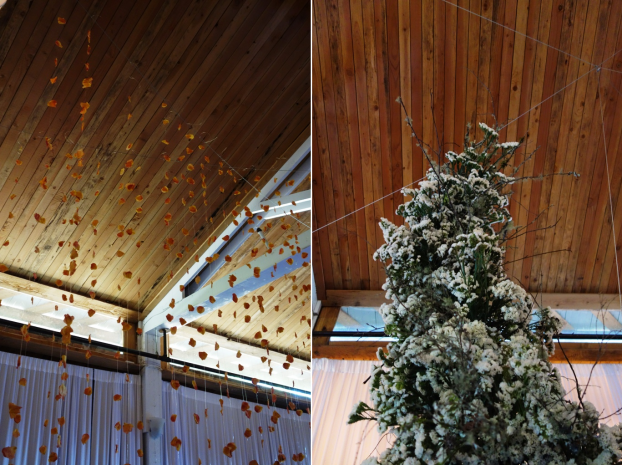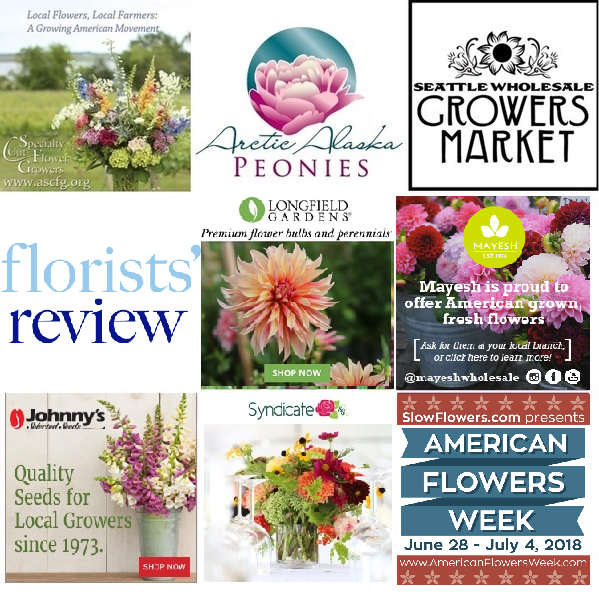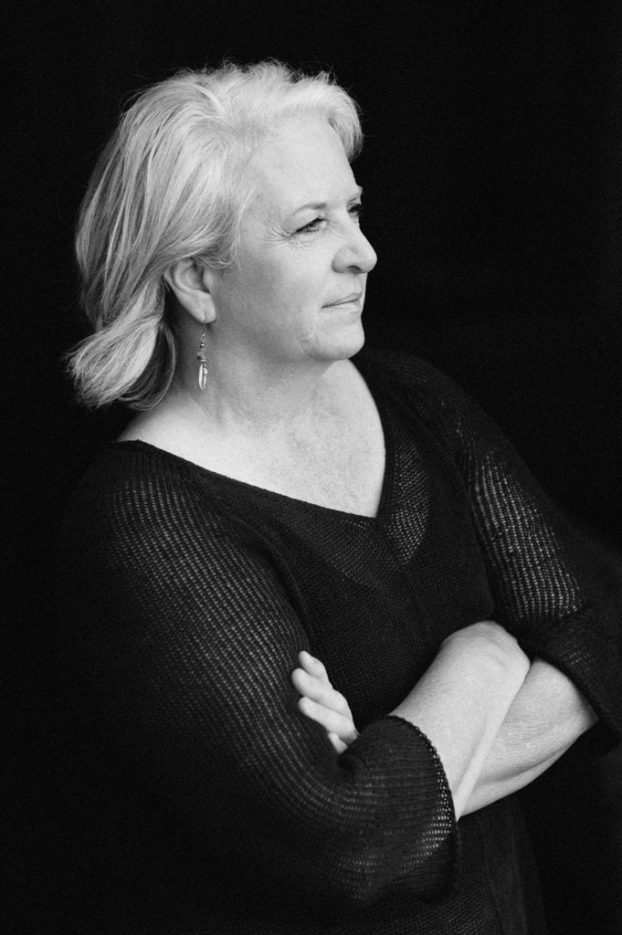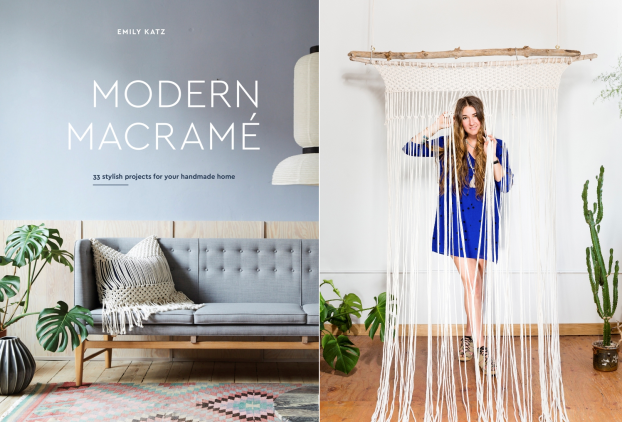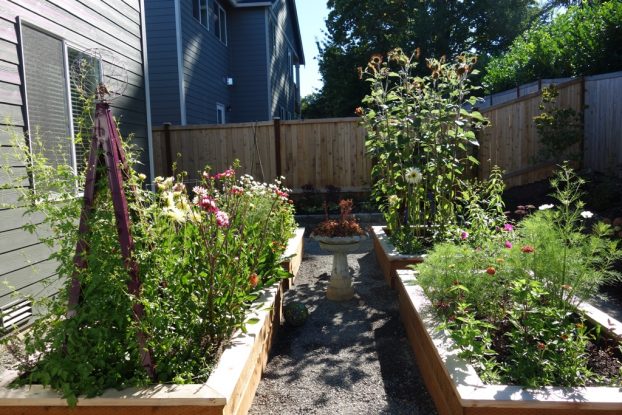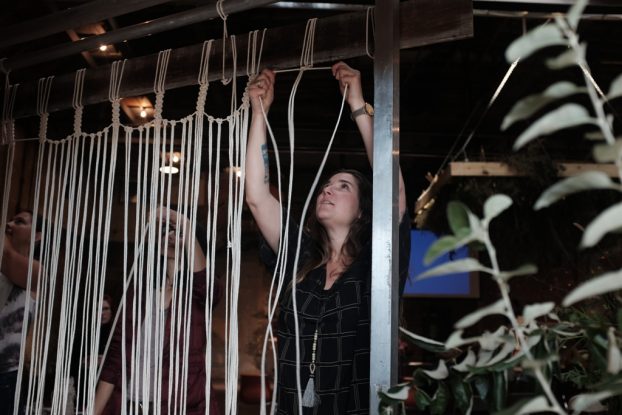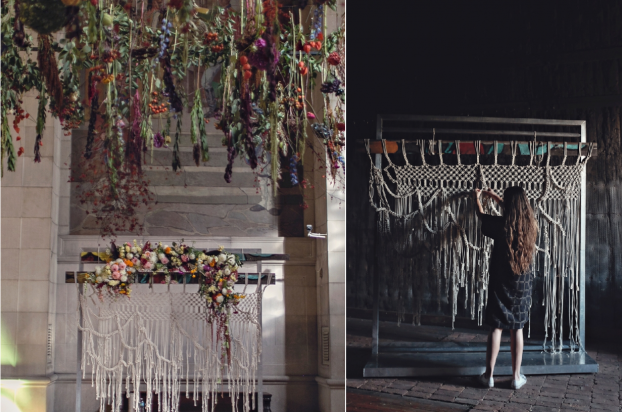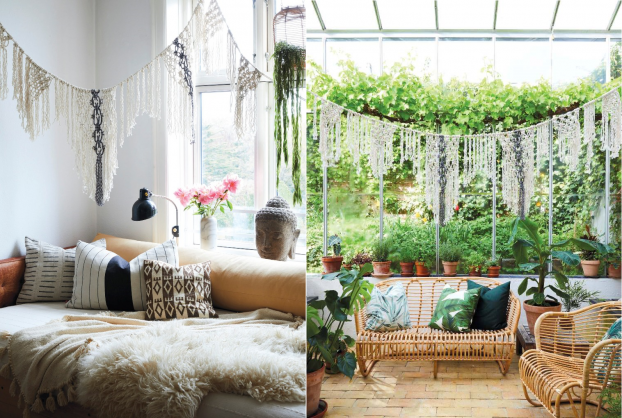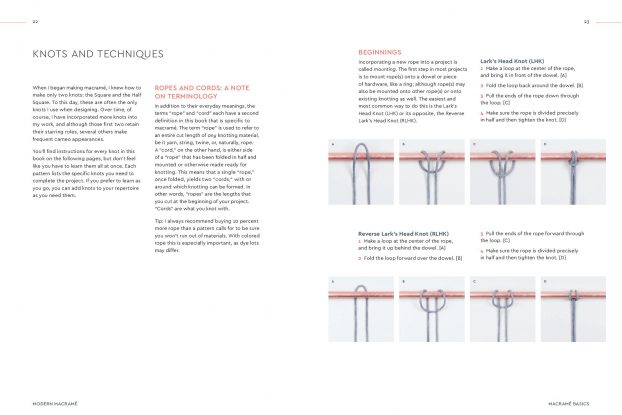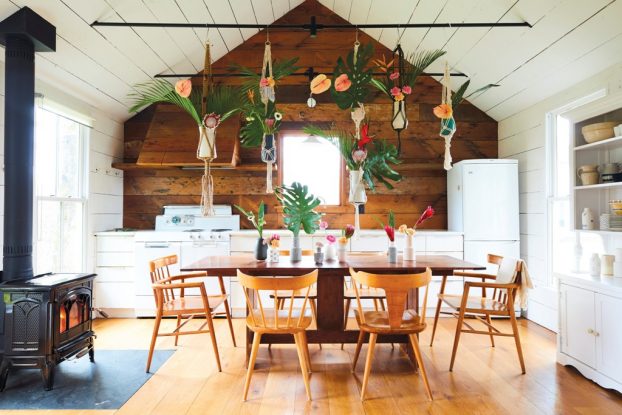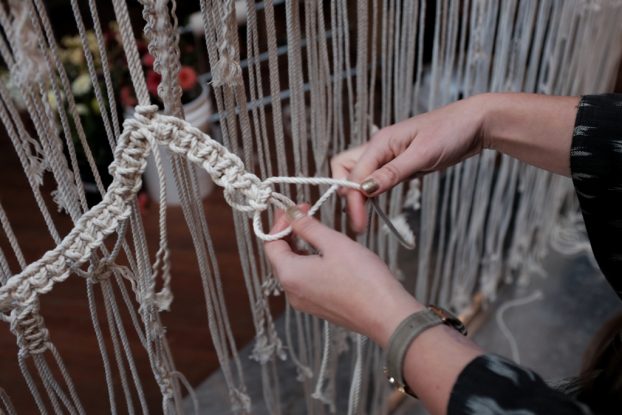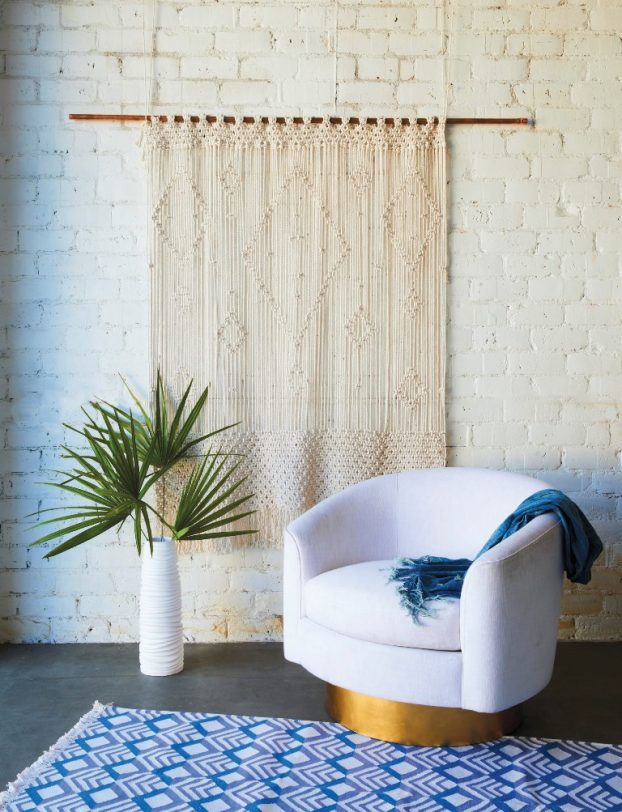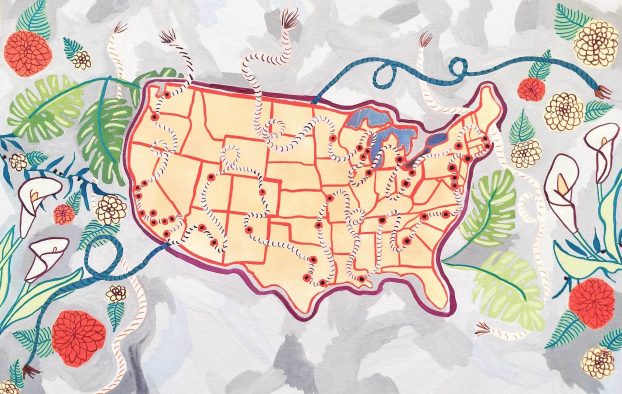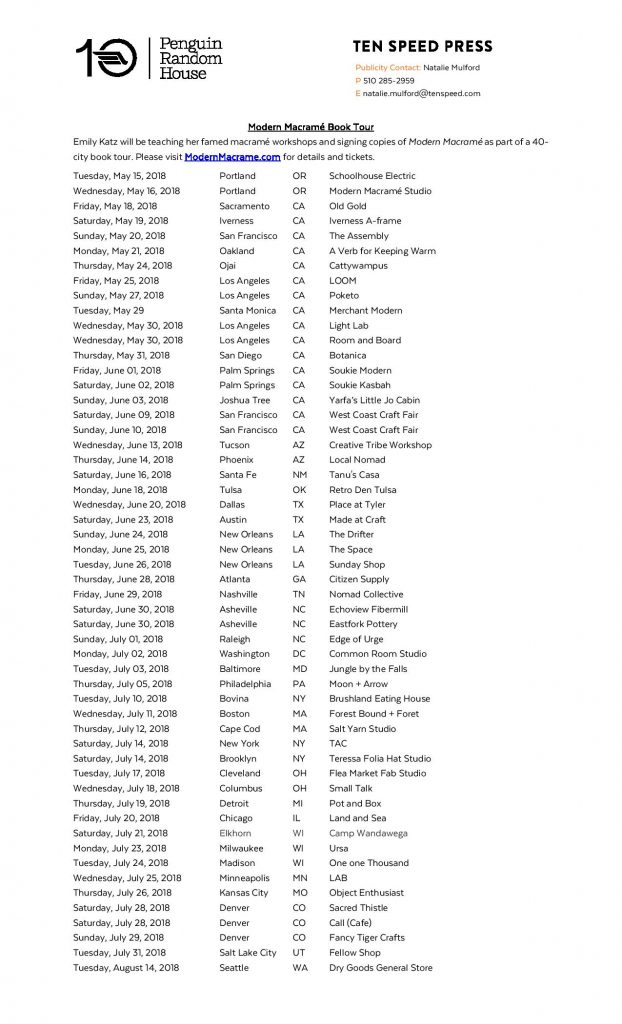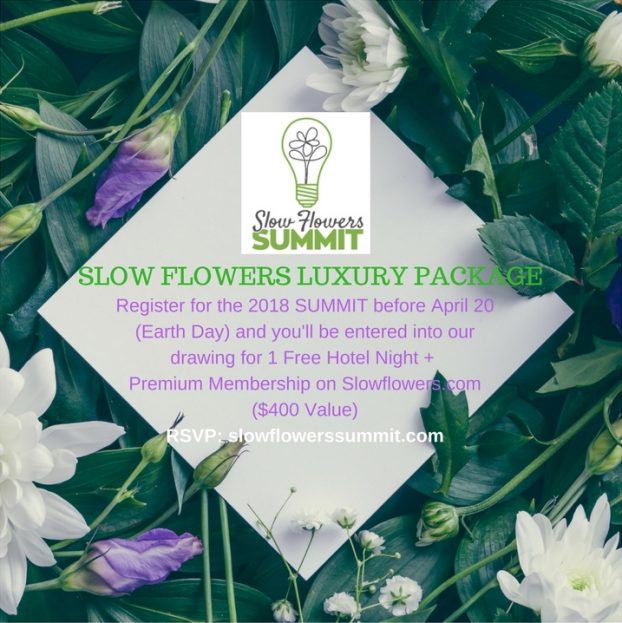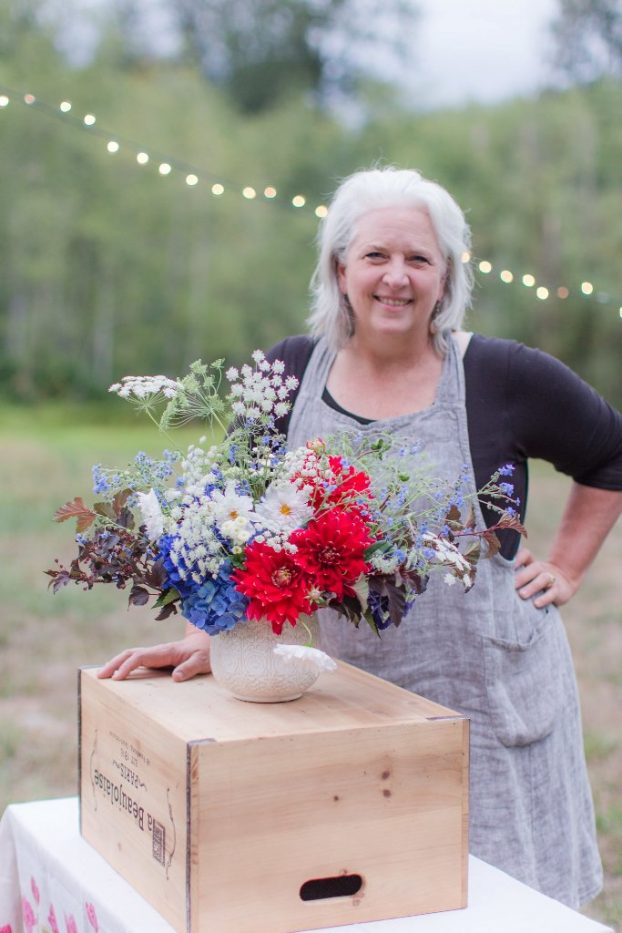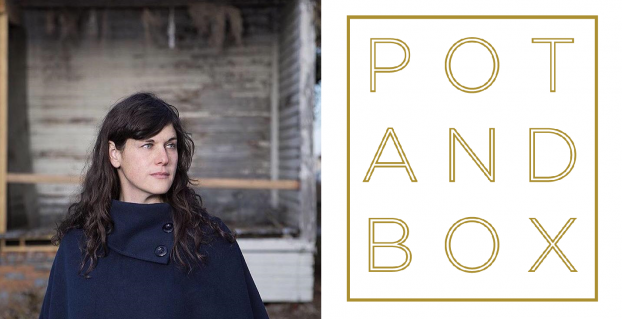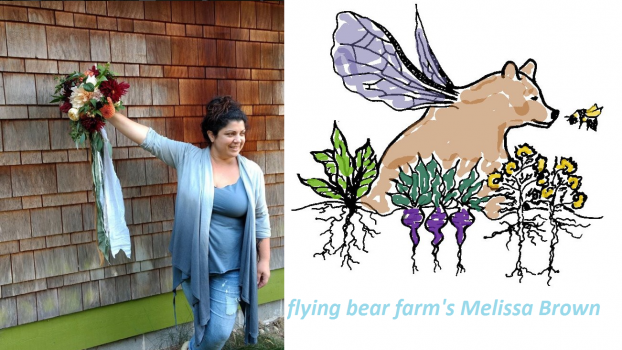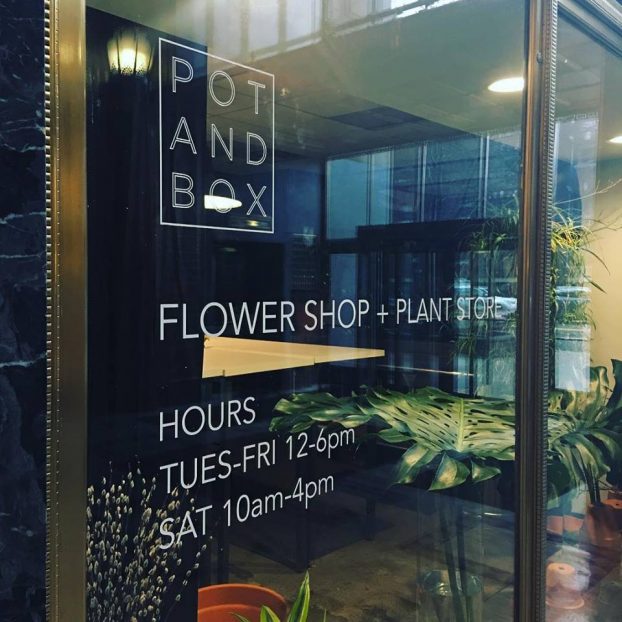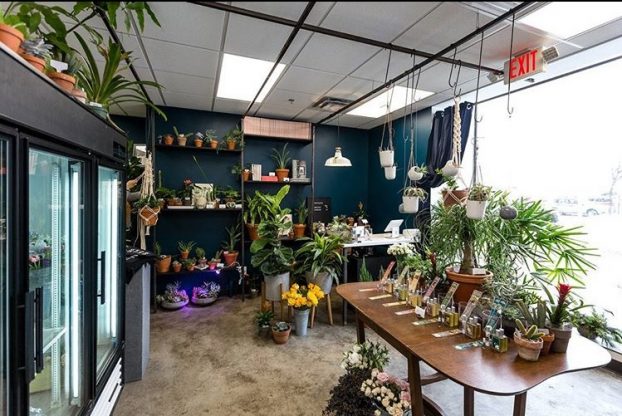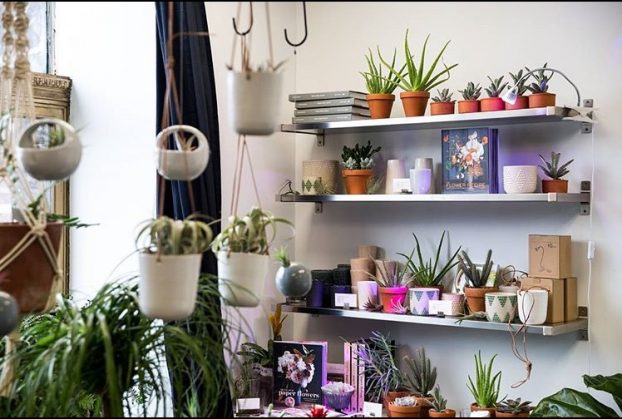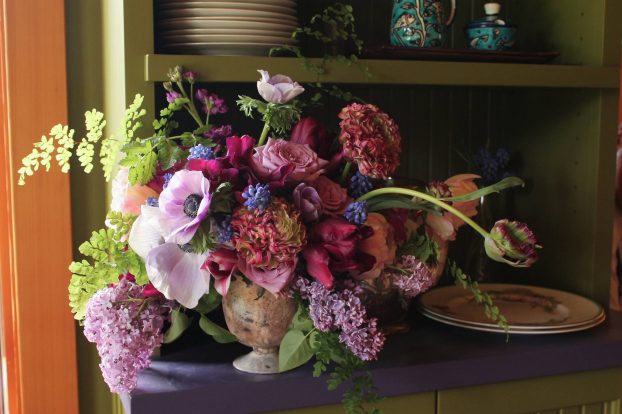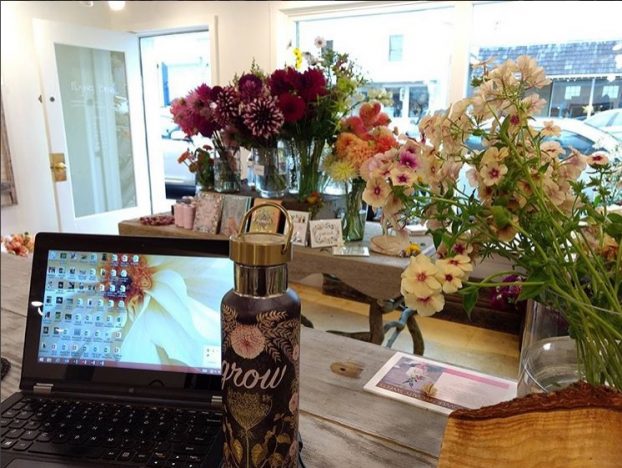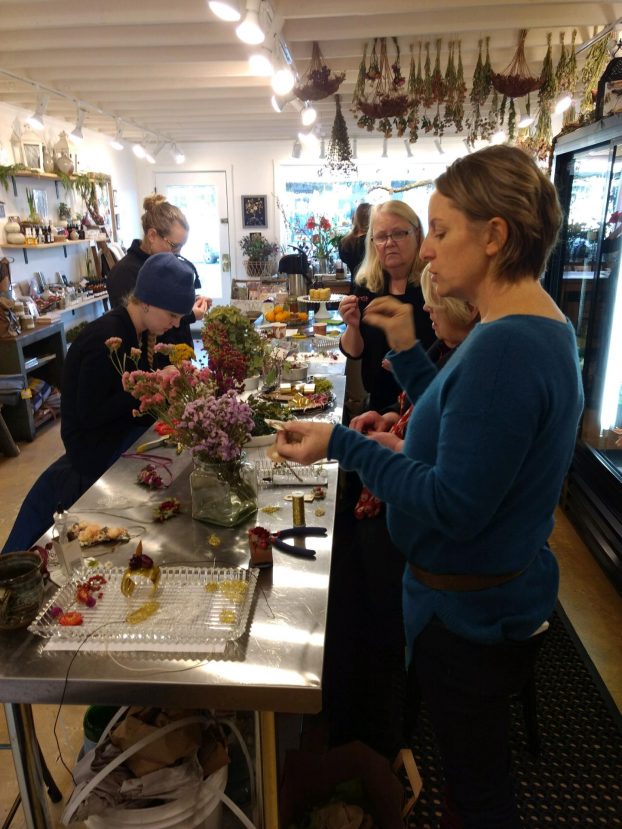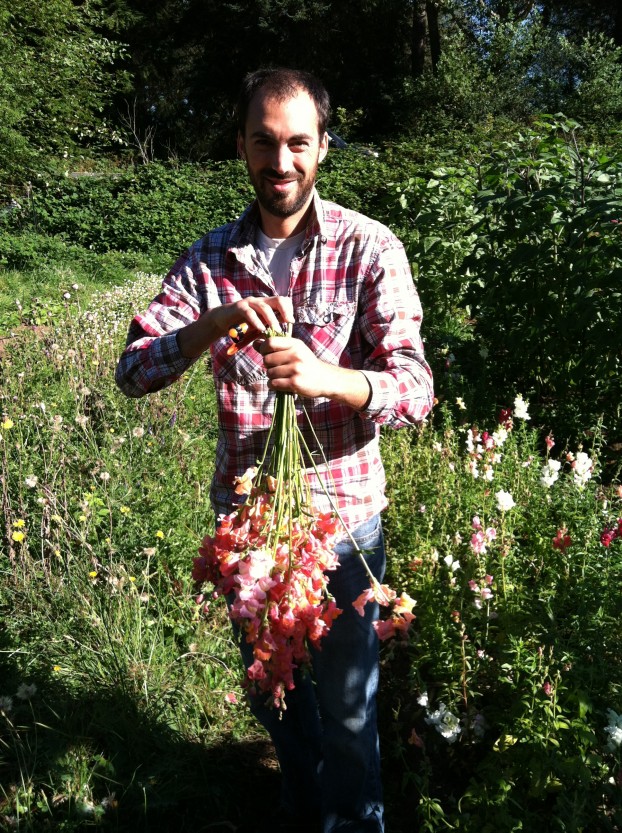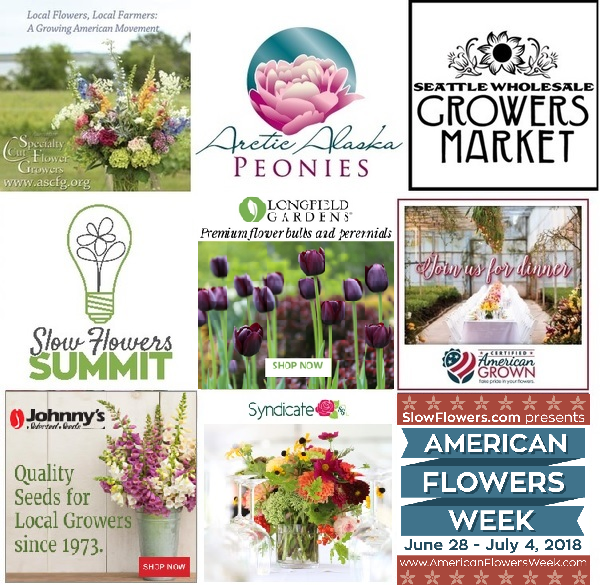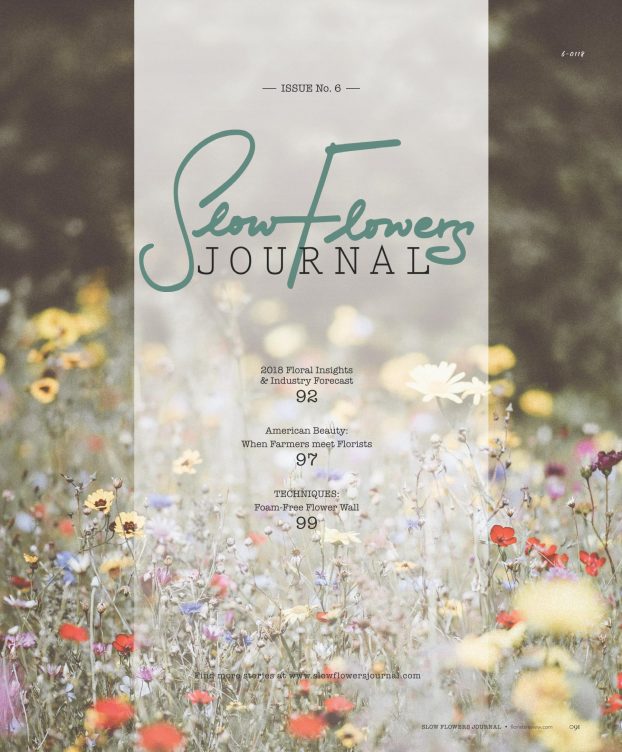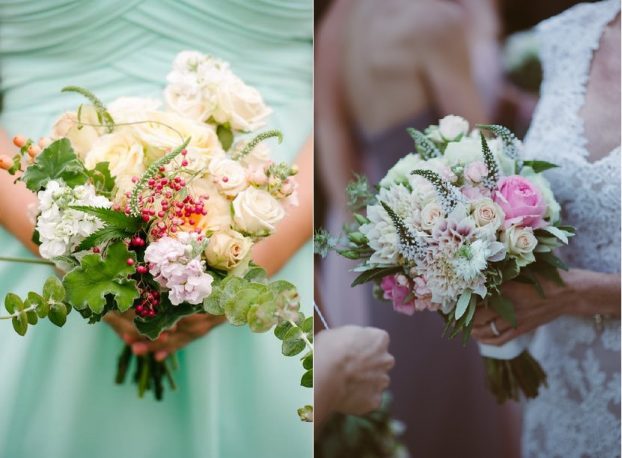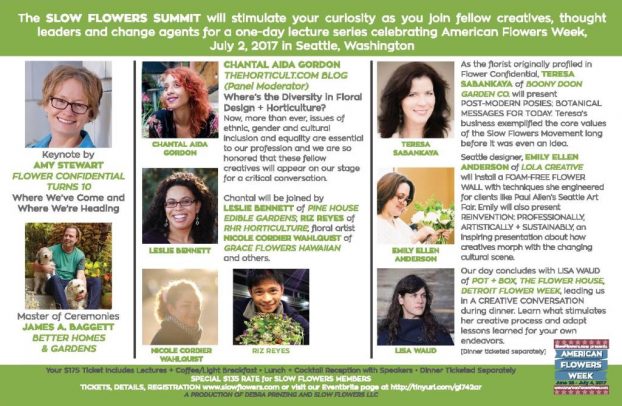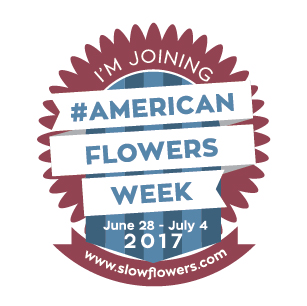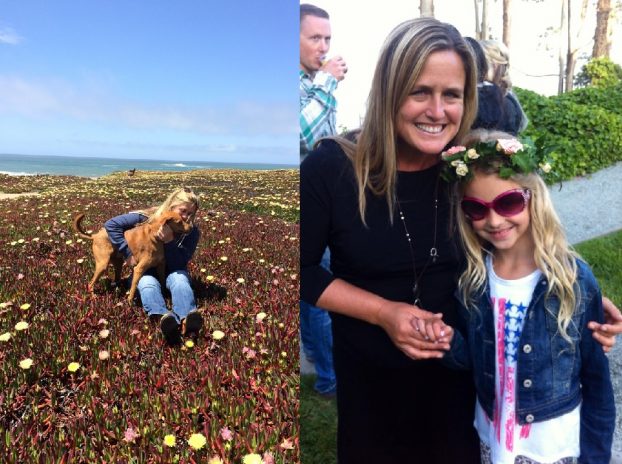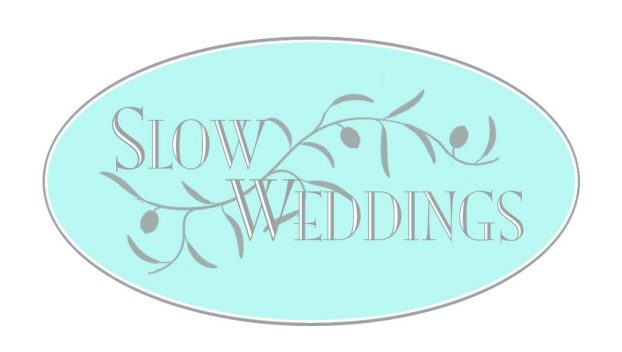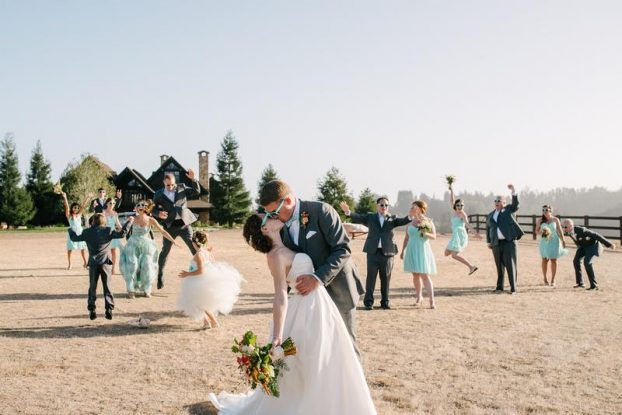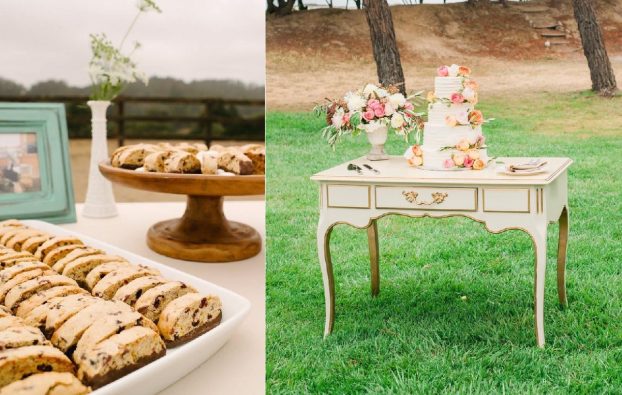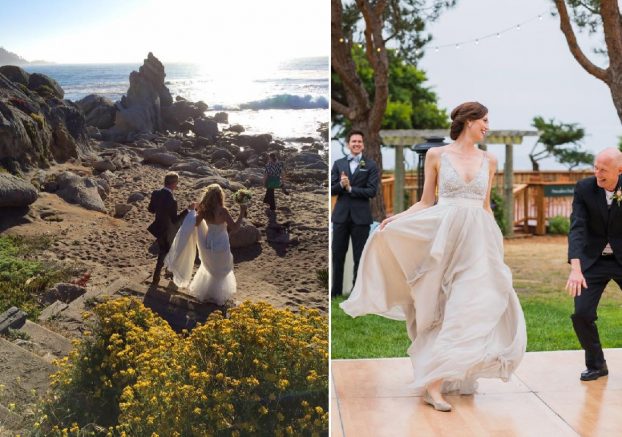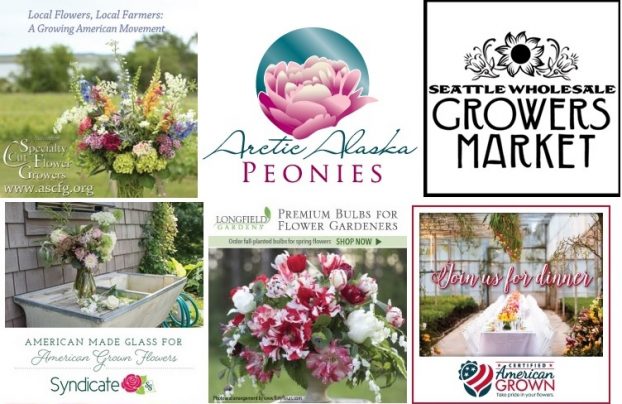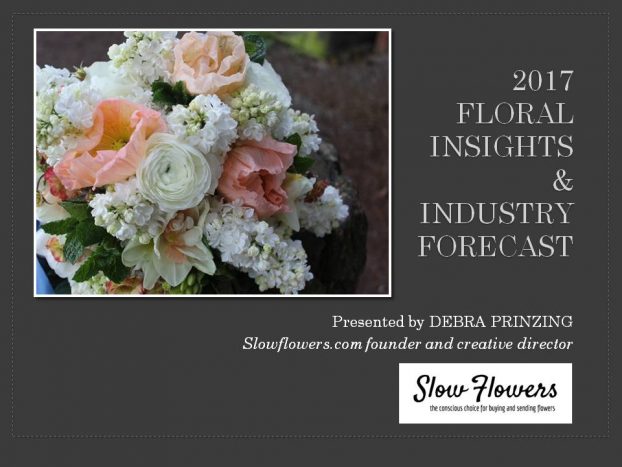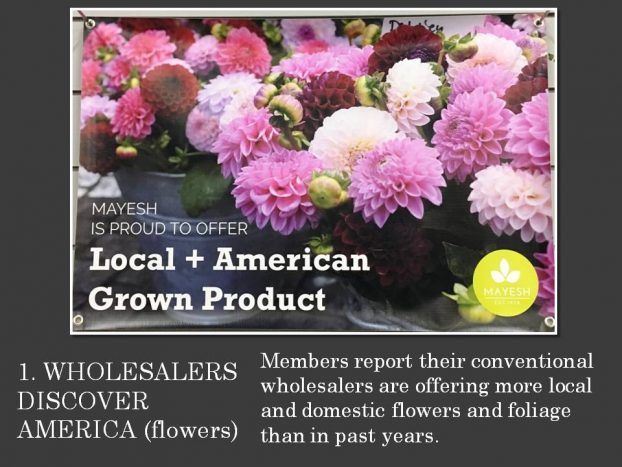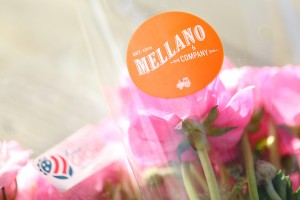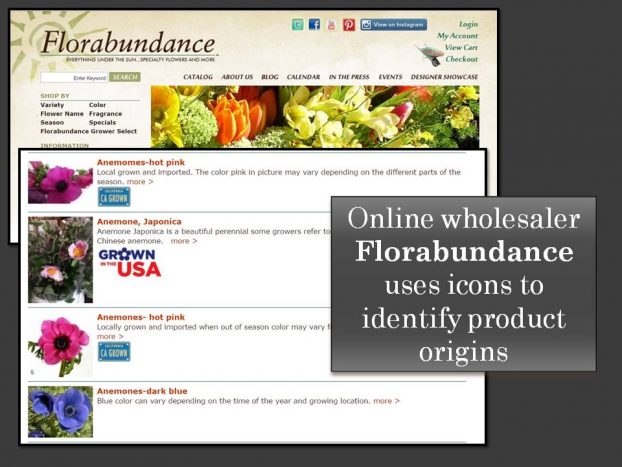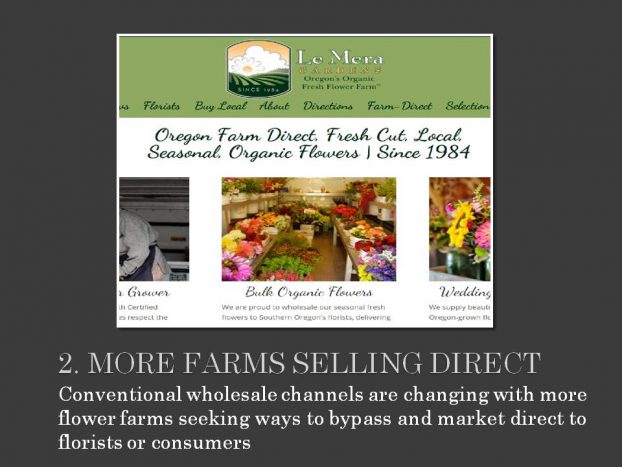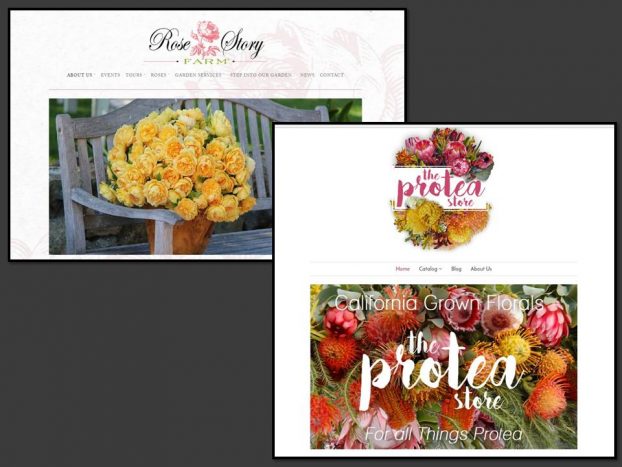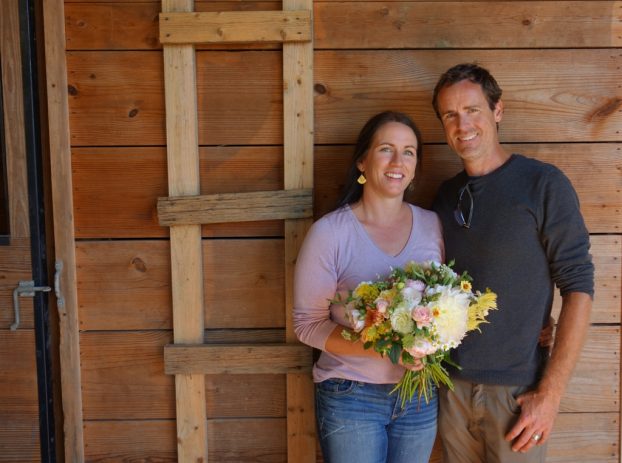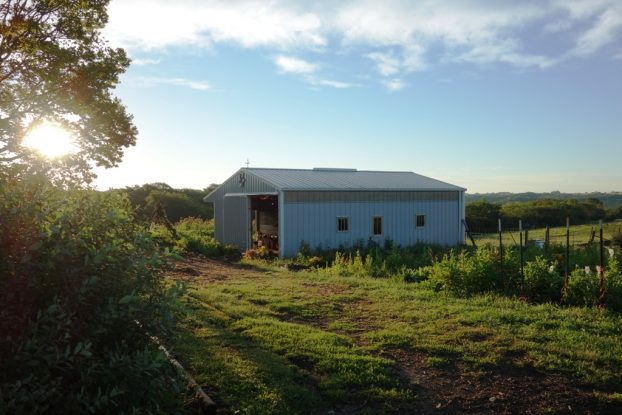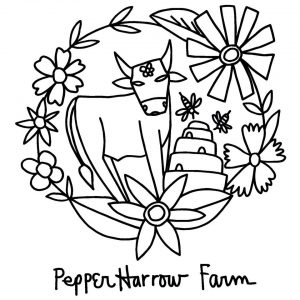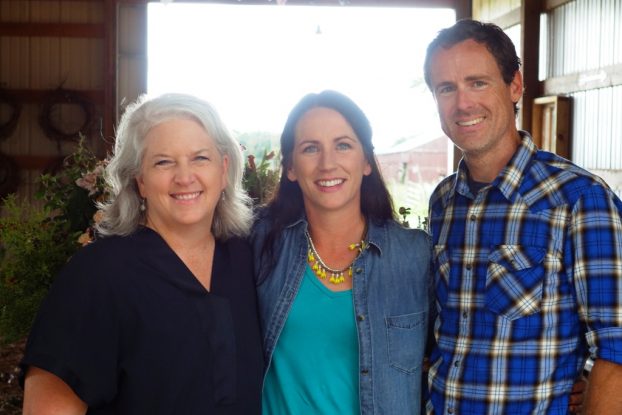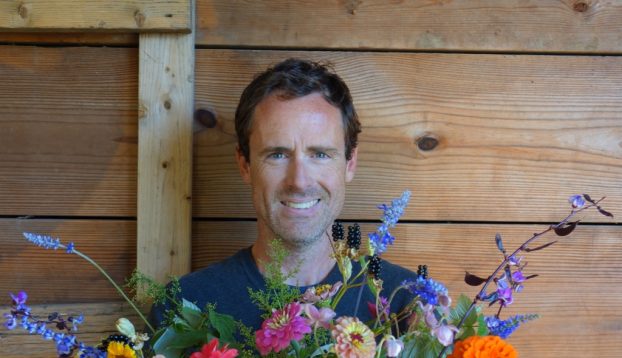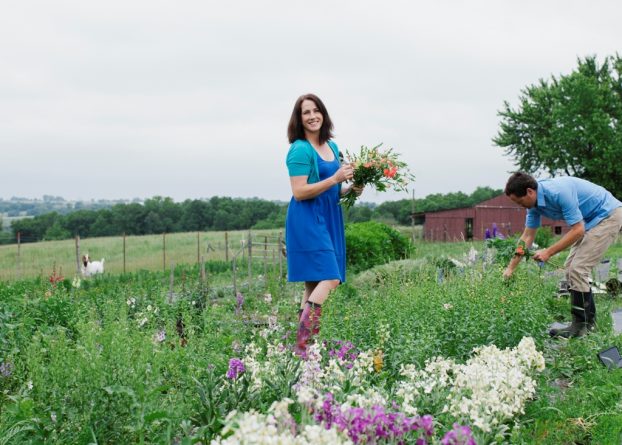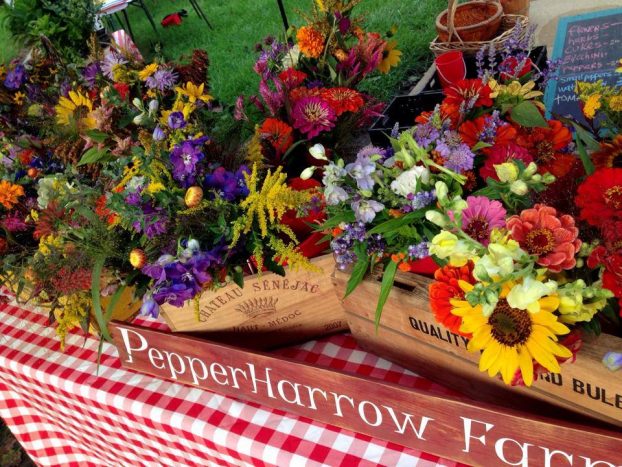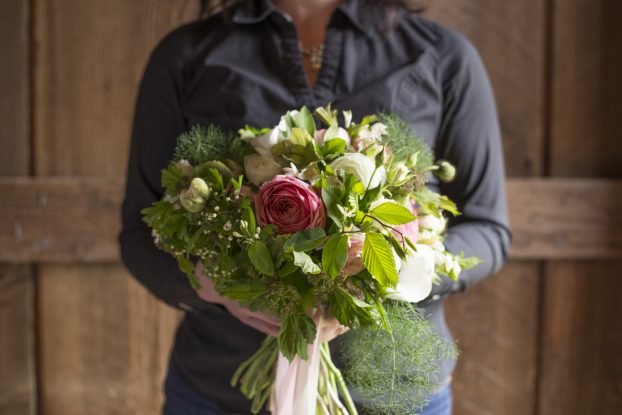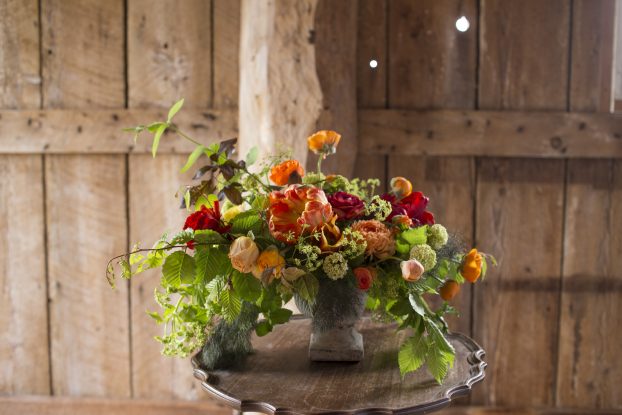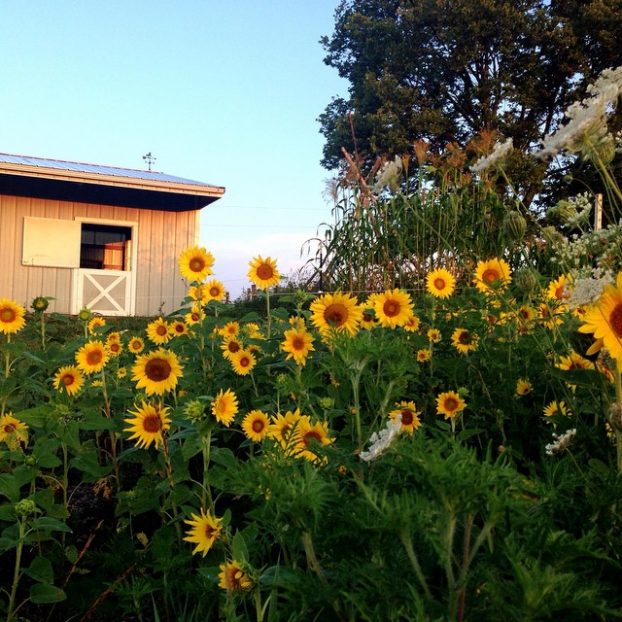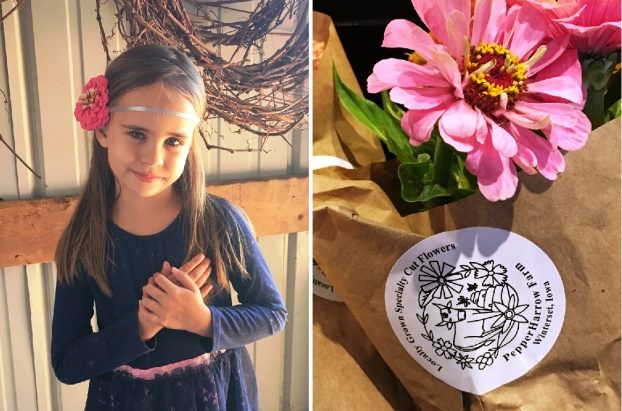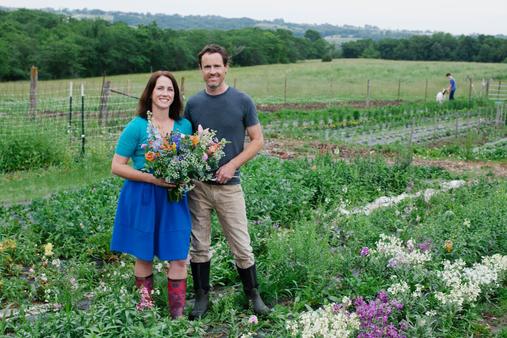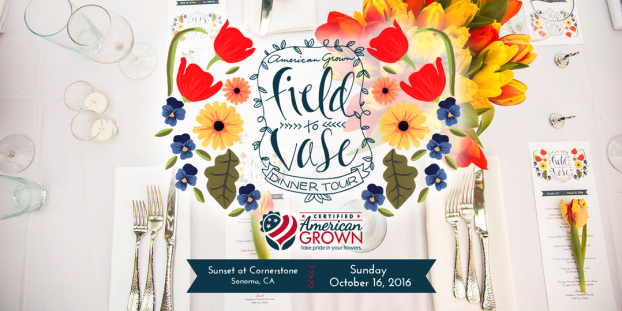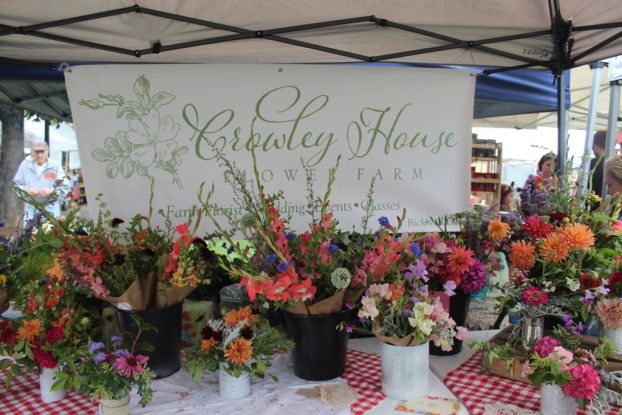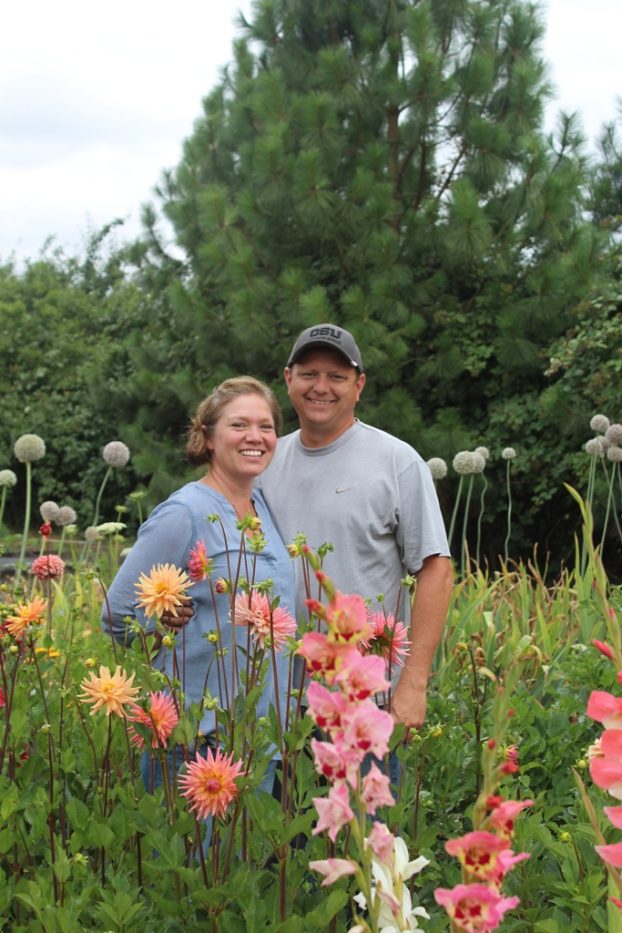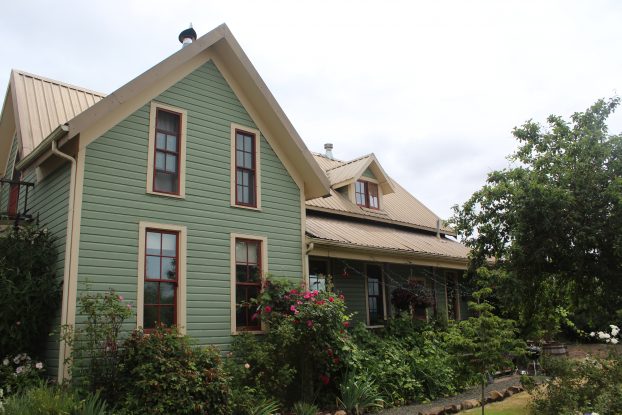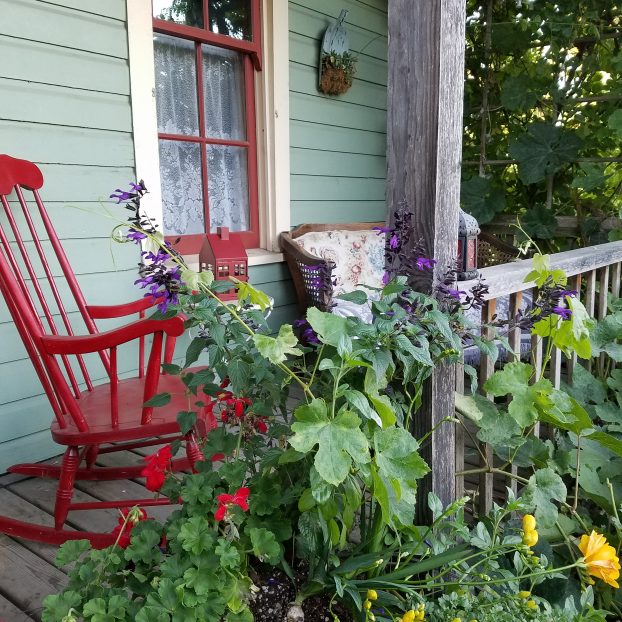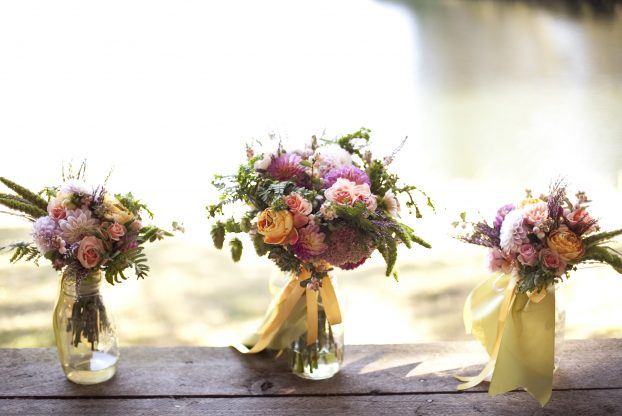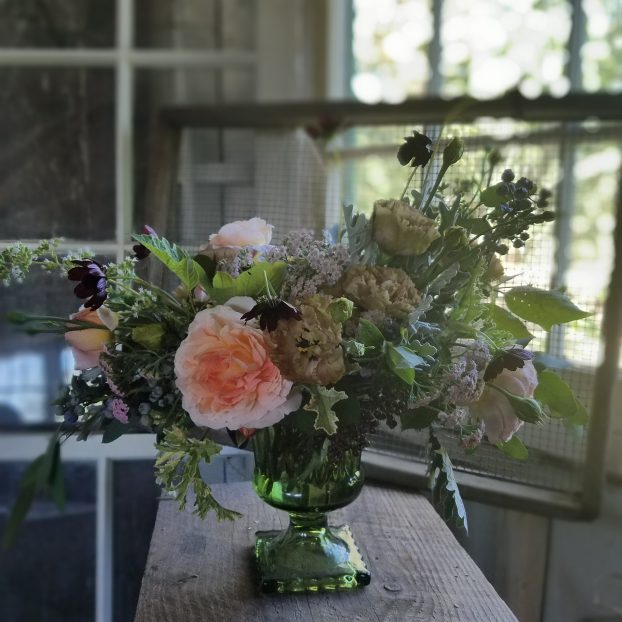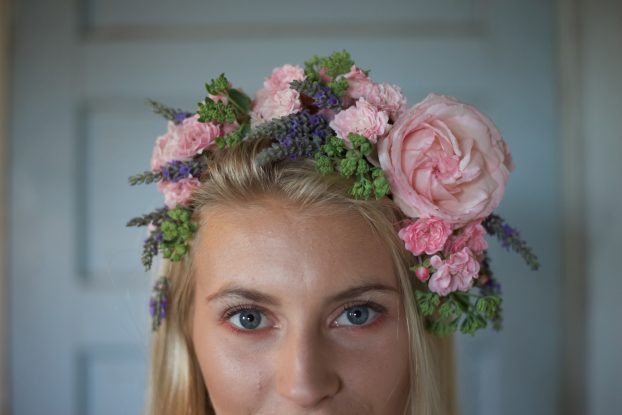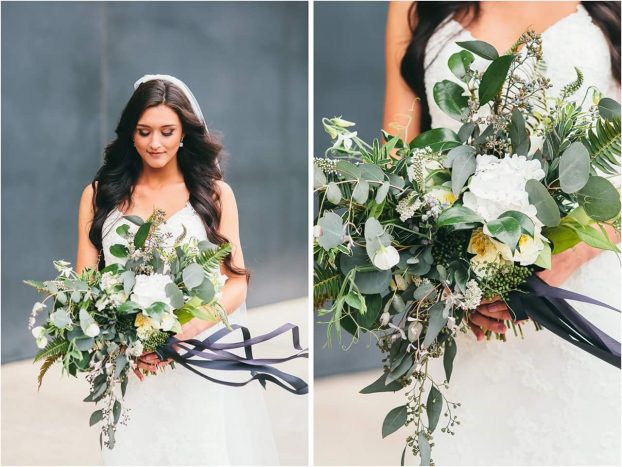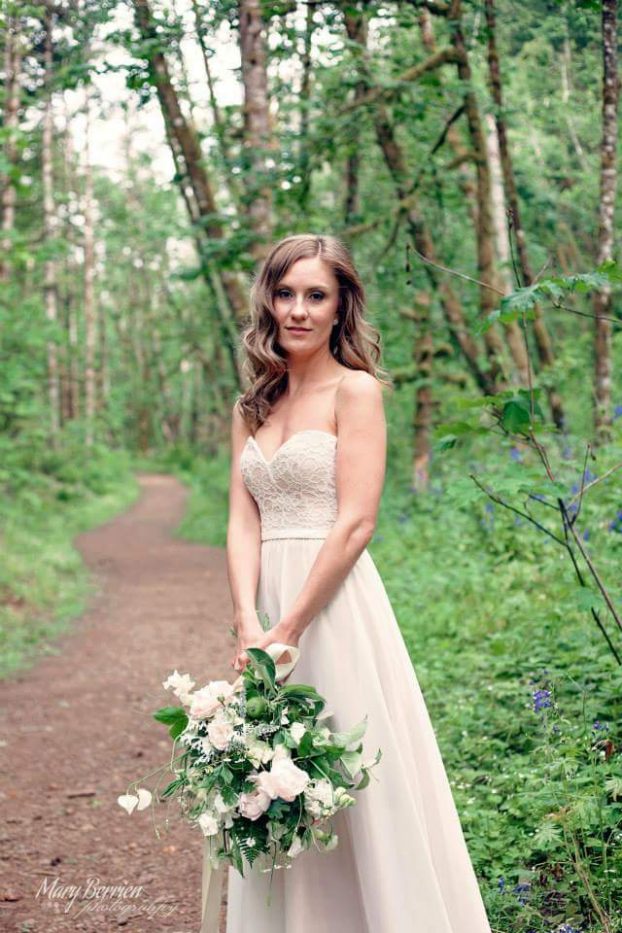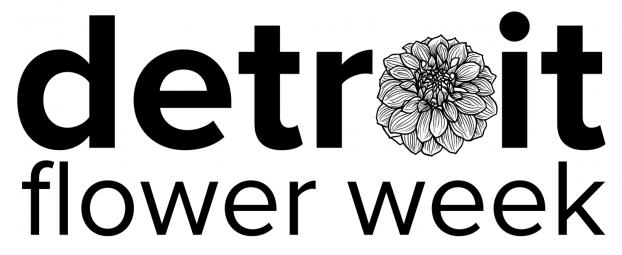Podcast: Play in new window | Download
Subscribe: Apple Podcasts | Podcast Index | RSS | More
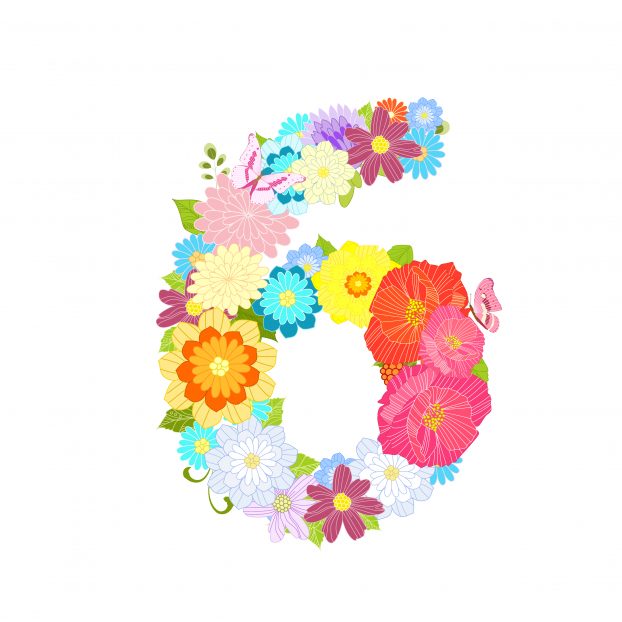
Folks, today we are celebrating the Slow Flowers Podcast’s six birthday! YES, it’s pretty amazing to hit this point, so far beyond the origins of this little project, which started in 2013. I believe it’s worth taking time to highlight the accomplishments of our small internet-based radio show that is this week celebrating not just a birthday, but also the incredible news that episodes of the Slow Flowers Podcast have been downloaded 500,000 times!
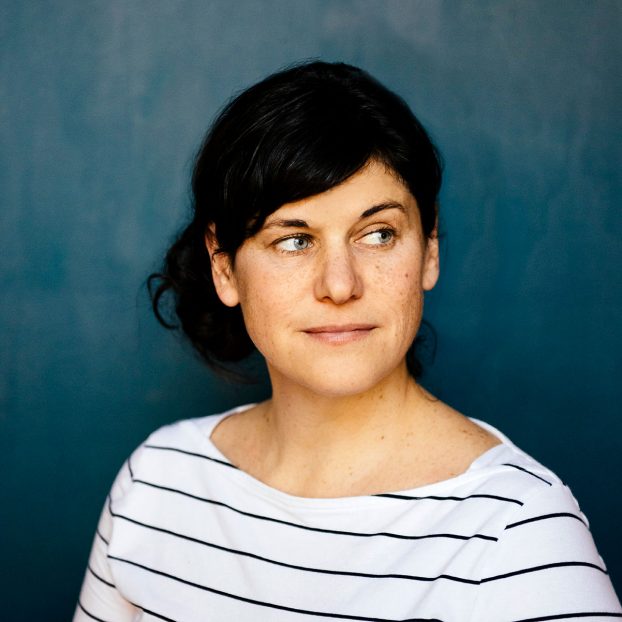
Behind these numbers are individuals like you and me, creatives who desire to build a life around beauty and sustainability. We are seeking a new model, defining our own progressive practices and embracing inclusive solutions that contribute to the floral marketplace in our own communities. We are in for a special treat with today’s guest — my friend, supporter and now collaborator, Lisa Waud. Stay tuned for my conversation with Lisa in just a few moments.
This is the weekly podcast about American Flowers and the people who grow and design with them. You are listening to the 312th consecutive weekly episode that asks: are you making a conscious choice when it comes to your flowers? You are invited to join the conversation and the creative community as we discuss the vital topics of saving our domestic flower farms and supporting a floral industry that relies on a safe, seasonal and local supply of flowers and foliage.
This podcast is brought to you by Slowflowers.com, the free, nationwide online directory to florists, shops, and studios who design with American-grown flowers and to the farms that grow those blooms. It’s the conscious choice for buying and sending flowers.
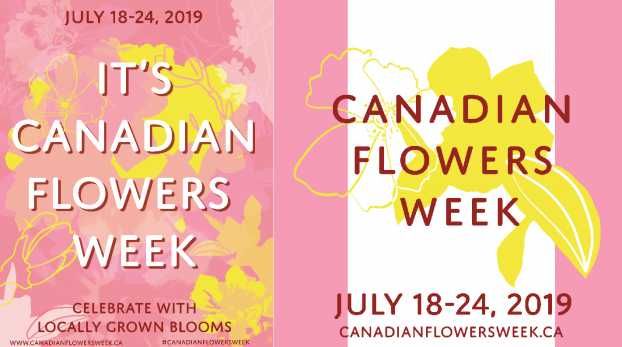
And before we meet today’s featured guest, I have to pause and share a huge SHOUT OUT to our Slow Flowers Canada friends. We are in the midst of the 2nd annual Canadian Flowers Week, which runs July 18-24, 2019, concluding today. With our deep passion for our own endeavor, American Flowers Week, Slow Flowers supported the initial launch of Canadian Flowers Week in 2018.
Canadian Flowers Week aims to raise awareness about Canadian grown blooms. Growers, wholesalers, designers, florists and retailers are holding events and building installations to promote locally-grown blooms across the country. You can learn lots more at canadianflowersweek.com — and check out people, farms, flowers and projects reflecting the best of Canadian-grown blooms. CFW is a project of Toronto Flower Market and we’re so please to have been a part of its inception.
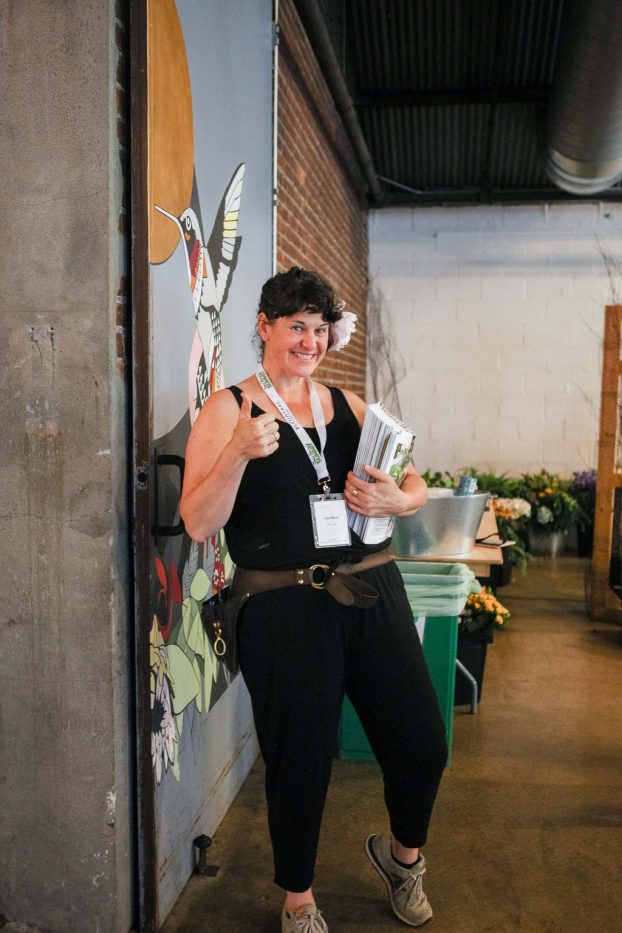
OKAY, now, I’m delighted to introduce return guest, Lisa Waud. You’re probably familiar with Lisa and her large-scale, ambitious exploits that include Flower House in 2015 and Detroit Flower Week in 2016, as well as the design studio and later retail project called pot + box. Follow the links below to listen to my past interviews with Lisa Waud.
Episode 334 (January 31, 2018)
Episode 211 (September 16, 2015)
Episode 181 (February 18, 2015)
These days, Lisa is a Detroit-based botanical installation artist and consultant to small and creative businesses. I’m so thrilled to say that Slow Flowers is one of her current projects — you’ll hear more about that when we dive into today’s episode.
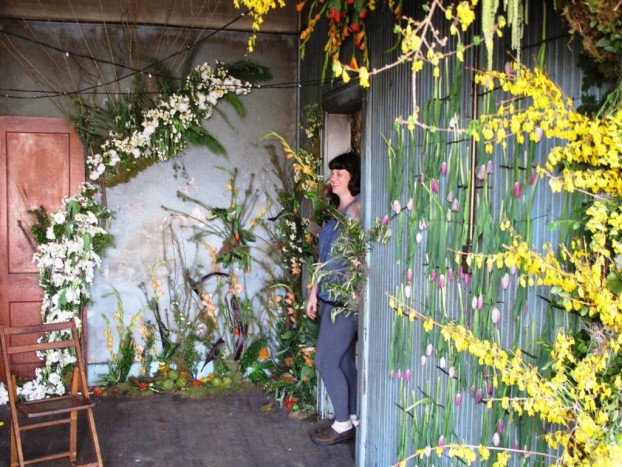
Here’s more about Lisa:
Lisa Waud’s large-scale, multi-sensory, immersive works utilize living plants and cut flowers, exploring themes of old and new, nature as a cleansing reset, and joy from beauty.
Lisa is committed to producing art events that are pointedly inclusive for collaborators and spectators, and accessible to all humans, with a focus celebrating the beauty of underrepresented and marginalized people.
Lisa’s projects have been featured in the new york times, huffington post, martha stewart, hyperallergic, colossal, designboom, the jealous curator, the globe and mail, the detroit free press, the detroit news, detroit art review, crain’s detroit, the washington post, and travel + leisure, and of course, on the slow flowers podcast.
In 2019, she launched a project called “Small Business Pain Relief,” working with established businesses to address pain points and efficiently implement action rather than just adding ideas to one’s to do list. lisa hopes to enable her clients’ creative productivity and assist in them realizing a joyful quality of life as a business owner.
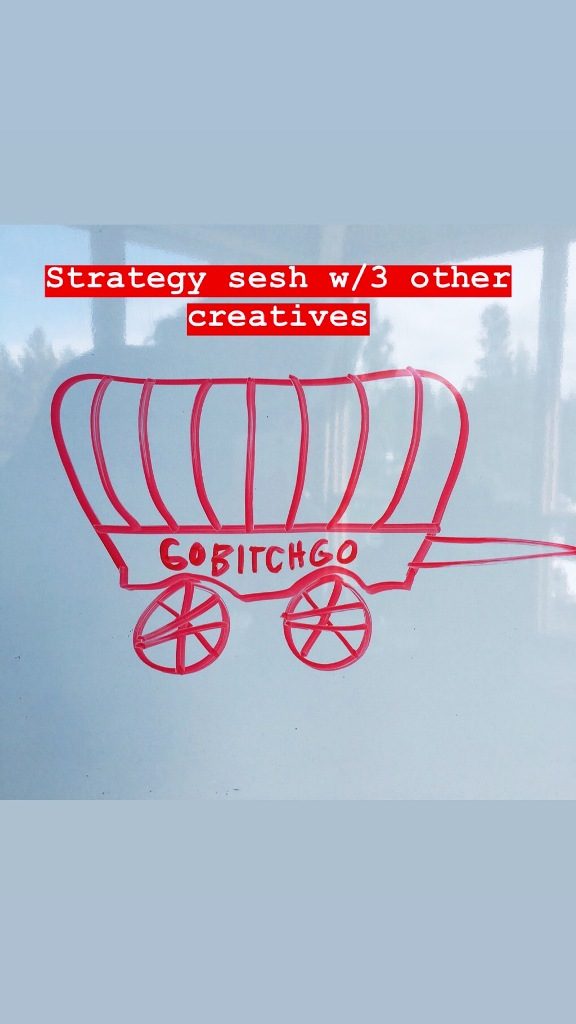
In late March, Lisa and I participated in a rather last-minute, spontaneous mind-meld with two other flower friends. Part getaway; part workation, the gathering of four women creatives in small and large ventures, from different generations and walks of life, was an electrifying experience to say the least.
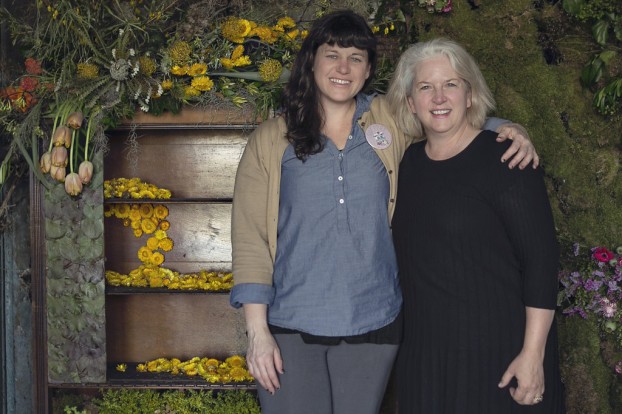
What emerged from our time together was a new collaboration for Slow Flowers, with Lisa joining me to manage a project I simply did not have time to tackle. I had been yearning for someone who could help me untangle the crazy knot of our Slow Flowers Member Database. For many, this would be a mind-numbingly boring, clerical, rather than creative task. Yet for Lisa, this was a challenge that called her in — and rise to the occasion, she has.
Join this conversation as we share more about our outcomes, and discuss Lisa’s many artistic projects on the horizon, including leading other women through some of the activities she devised for our late March getaway with friends.
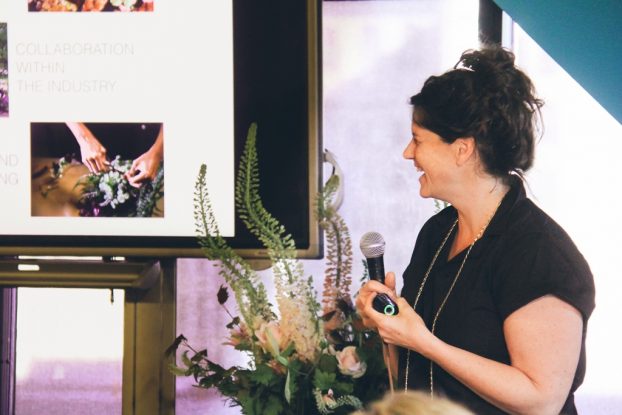
I encourage you to have an open mind today. Instead of gushing over beautiful blooms and exquisite bouquets, we’re going to turn the focus on the wellness of your creative venture, your dreams that can’t seem to get off the ground, your desire to create a meaningful business life, and what’s truly essential to feed heart, mind, body and soul
Come along for the journey. I can’t imagine a more rewarding way to celebrate this Podcast’s sixth birthday!
Thank you so much for joining me today as I welcomed Lisa Waud, an incredible influence in my life and in the Slow Flowers Community. You can find and follow her on social media:
If you are a Slow Flowers member you’re sure to hear from Lisa sometime this year. She is reaching out to connect when she can. Or, just email her at membership@slowflowers.comto say hello.

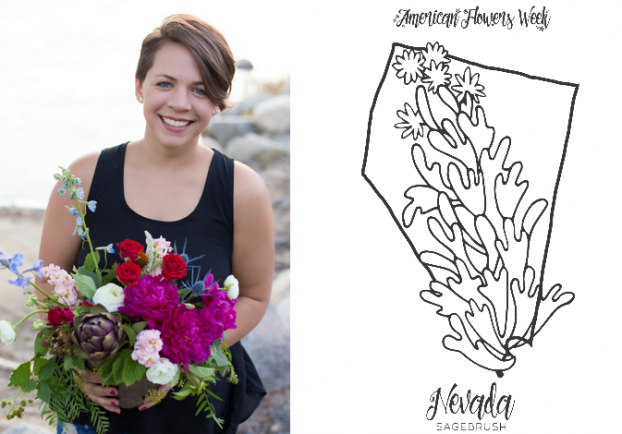
Our theme for 2019 – Fifty States of Slow Flowers – continues today with Bethany Frediani of Sunflower & Sage Floral in Gardnerville, Nevada. Listen for my conversation with Bethany in the second portion of this episode.
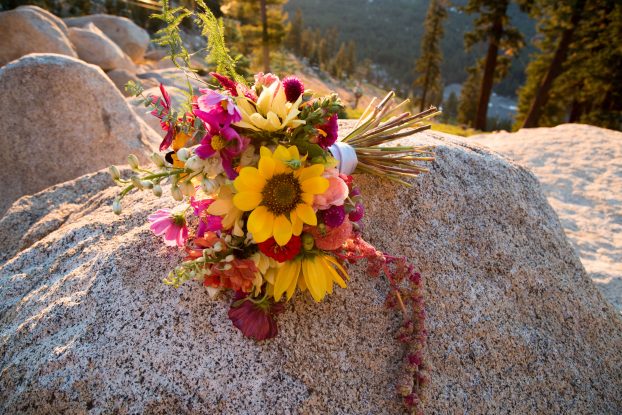
Bethany is a studio-based wedding and event florist serving the Lake Tahoe area. Her designs echo the wild and rugged beauty of the region, with touches of elegance.
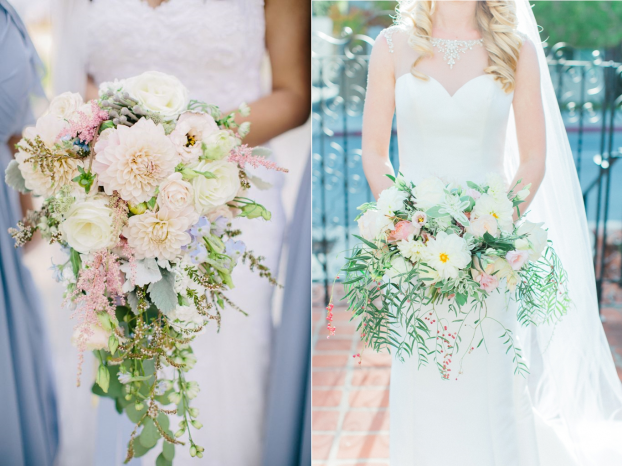
“Most of my clients are excited to hear that I will be incorporating regional floral product into their wedding designs. I like to utilize the blooms that are thriving at the time of the wedding, filing in with foraged foliage and bringing in product from my neighboring flower hub of California,” Frediani says. “I love to infuse my work, be it wedding flowers or large-scale, fine art floral installations, with whimsical, dreamy and organic elements.”
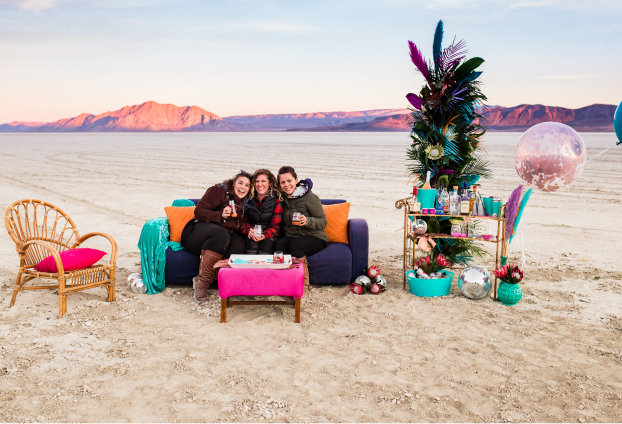
Follow Bethany and Sunflower & Sage Floral at these social places:
Sunflower & Sage Floral on Facebook
Sunflower & Sage Floral on Instagram
Sunflower & Sage Floral on Pinterest

Thank you for taking the time to join the Slow Flowers Podcast today as we achieved two major milestones — the 6th Anniversary of our launch in 2013 AND our 500,000th episode download from a listener.
This is so incredible and yet the metrics tell only part of the story. I am so grateful to the real, flower-loving humans who have helped to shape and nurture the concept of Slow Flowers into a movement that has swept North America and now migrated to many other countries around the globe, countries where flower farmers, farmer-florists and designers are seeking ways to save their domestic floral landscape and promote sustainable practices in their profession.
Together we define the Slow Flowers Movement. As our cause gains more supporters and more passionate participants who believe in the importance of the American cut flower industry, the momentum is contagious. I know you feel it, too. I value your support and invite you to show your thanks and with a donation to support my ongoing advocacy, education and outreach activities. You can find the donate button in the column to the right.
THANK YOU TO OUR SPONSORS
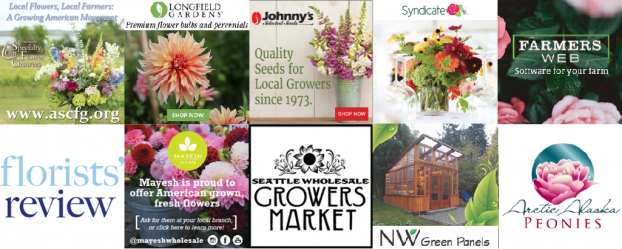
And thank you to our lead sponsor, Florists’ Review magazine. I’m delighted to serve as Contributing Editor for Slow Flowers Journal, found in the pages of Florists’ Review. It’s the leading trade magazine in the floral industry and the only independent periodical for the retail, wholesale and supplier market. Take advantage of the special subscription offer for members of the Slow Flowers Community.
Syndicate Sales, an American manufacturer of vases and accessories for the professional florist. Look for the American Flag Icon to find Syndicate’s USA-made products and join the Syndicate Stars loyalty program at syndicatesales.com.
Arctic Alaska Peonies, a cooperative of family farms in the heart of Alaska working together to grow and distribute fresh, stunning, high-quality peony varieties during the months of July and August. Arctic Alaska Peonies operates three pack houses supplying peonies throughout the United States and Canada. Visit them today at arcticalaskapeonies.com
FarmersWeb software makes it simple for flower farms to streamline working with their buyers. By lessening the administrative load and increasing efficiency, FarmersWeb helps your farm save time, reduce errors, and work with more buyers overall. Learn more at www.farmersweb.com.
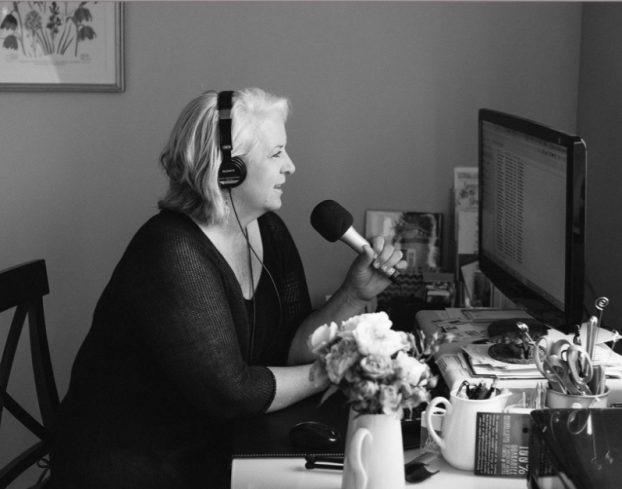
The Slow Flowers Podcast has been downloaded — wait for it — 500,000 times by listeners like you. Yes, one half million times. Thank you for listening, commenting and sharing – it means so much.
I’m Debra Prinzing, host and producer of the Slow Flowers Podcast. Next week, you’re invited to join me in putting more American grown flowers on the table, one vase at a time. And If you like what you hear, please consider logging onto iTunes and posting a listener review.
The content and opinions expressed here are either mine alone or those of my guests alone, independent of any podcast sponsor or other person, company or organization.
The Slow Flowers Podcast is engineered and edited by Andrew Brenlan. Learn more about his work at soundbodymovement.com. Huge congrats to Andrew and Hannah Brenlan for the arrival on July 16th of their first child on Francis Lou Brenlan. We love you all and celebrate this beautiful new human in our world.
Music Credits:
Wingspan; Chromium Blush; Betty Dear; Gaena
by Blue Dot Sessions
http://www.sessions.bluehttps://creativecommons.org/licenses/by-nc/4.0/
Lovely by Tryad
http://tryad.bandcamp.com/album/instrumentals
http://creativecommons.org/licenses/by-sa/3.0/
In The Field
Music from:
audionautix.com











